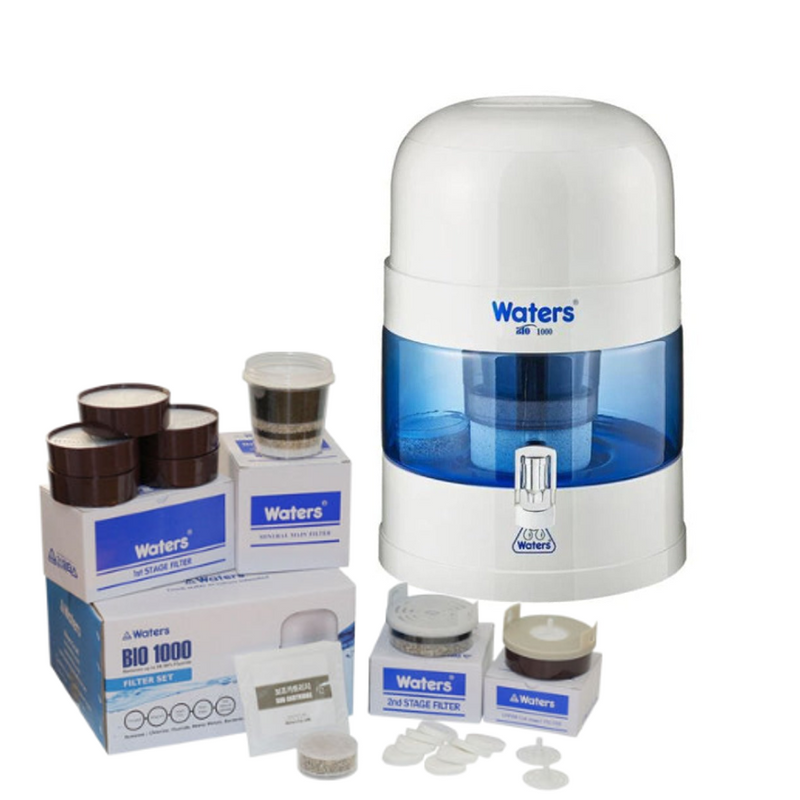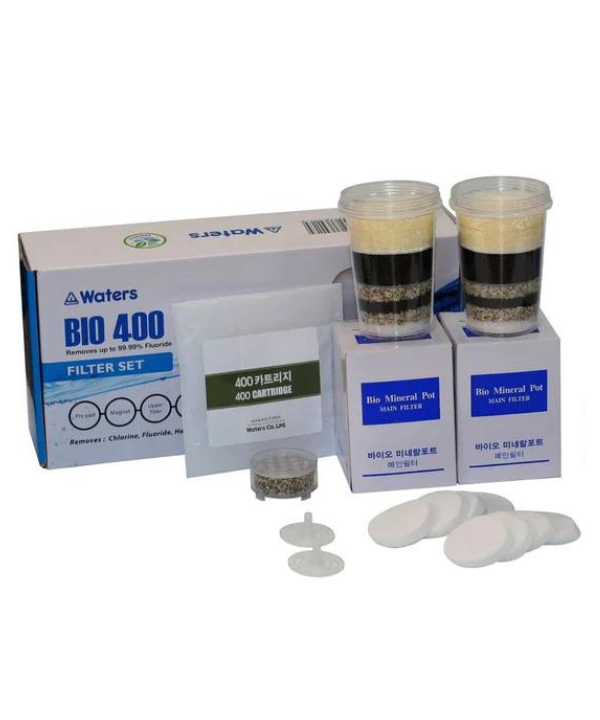Are there any benefits to alkaline water?
As we strive for a healthier lifestyle, the quest for the perfect water source becomes increasingly important. In the growing purified water market, the term "alkaline water" is becoming increasingly popular. However, what exactly is alkaline water, and does it meet the level of health-related interest it often elicits? In this article, we will uncover the benefits of alkaline water to evaluate its potential impact on your health. Additionally, will adding alkaline water to your daily hydration regimen be a worthwhile and beneficial decision?
What is Alkaline Water?
Alkaline water has a higher pH than regular tap water, between 0 and 14. You can think of it as having a neutral pH of 7, meaning anything below that is considered acidic, and anything above that is alkaline. People who use alkaline water say it can neutralise the acidity in your body, and they also say it can help with your metabolism and help you get more nutrients. Let's look at what the science says about alkaline water and how it might affect your body's pH balance to help improve your well-being.
Unveiling the pH Mysteries of Tap Water
Tap water is one of our most common sources of hydration, and its pH level is typically in the neutral range. However, the exact pH level is not a fixed number, as it may vary depending on the origin and water treatment process. This raises the fundamental question: Does tap water correspond to the optimal pH levels for promoting health? The complex pH profile of tap water makes it more difficult to evaluate its potential, yet simpler to determine whether alkaline water is viable and health-promoting. Understanding the inherent pH dynamics of tap water is essential to uncovering its potential benefits and drawbacks for your health.
Unveiling the Alkaline Alchemy of Natural Water Sources
Mother Nature's water resources, particularly springs and certain types of wells, possess alkaline water benefits. Ground wells that contain decomposed carbonate and hydroxide minerals from soil and rock materials to increase the amount of magnesium and calcium ions in the water produce alkalinity in the form of the water’s ability to neutralise acids. The geology of the land where the water originates is also important, as it passes through minerals that act as alchemical catalysts. Therefore water, which was initially neutral, has undergone a transformation and become alkaline. Furthermore, the pH of the surrounding environment is also affected by the presence of vegetation, particularly alkaline-friendly plants. Often located in pristine sites and alkalised wells, springs produce this sought-after water, the earth’s lifeblood, in various geological and environmental factors.
Understanding the Health Benefits of Alkaline Water
By better understanding alkaline water's properties, you can identify whether alkaline water benefits your health. Examining the claimed benefits of alkaline water on hydration, acid reflux, and overall well-being provides insight. Hydration is a key factor in overall well-being. Proponents of alkaline water suggest that increased absorption is possible due to its higher pH levels, which may lead to increased body hydration at the cellular level.
Acid reflux is another area of focus for alkaline water, as it has been suggested that it can neutralise stomach acid, which may provide relief for some individuals suffering from this condition. However, no scientific consensus exists, and further research is required. It is important to note that individual reactions to alkaline water can vary. Therefore, it is necessary to consult with healthcare professionals to ensure that the health goal aligns with the individual needs and considerations.
Potential Side Effects of Using Too Much Alkaline Water
It's important to know the side effects of drinking too much alkaline water to stay healthy. Some people say alkaline water can neutralise acid and has many health benefits, but like any substance, be careful if you notice any negative side effects from over-consumption. It's important to seek advice from a healthcare professional before changing your water habits. Remember, use a personalised approach to drinking alkaline water.
A DIY Guide to Making Alkaline Water
Home-brewed alkaline water is attractive and achievable for DIY enthusiasts. Consider effective methods, including additives such as baking soda or pH drops. An interesting approach is using water filters, which reintroduce alkalising minerals to the water, balancing its pH and removing contaminants. You’ll need to explore the mechanics, cost, and health benefits of these filter systems. By experimenting with these methods, you can obtain the best alkaline water benefits in ways that suit your needs.
Where Can You Buy Alkaline Water?
Waters Co Australia offers a wide selection of alkalinising filter products from local stores and online platforms. We provide detailed product descriptions and customer reviews to ensure you can make an informed decision from the convenience of your home. We have established partnerships with local health food stores and wellness centres to ensure that our products are of the highest quality and meet the finest levels of purity.
Who Should and Shouldn't Drink Alkaline Water
Alkaline water has been widely touted as a potential health benefit; however, the appropriateness of its use varies from person to person. Understanding who alkaline water benefits the most and who should be cautious. The benefits of drinking alkaline water are likely significant for those who lead active lifestyles or engage in regular physical activity. This improved absorption of water may help with hydration during strenuous exercise.
Athletes and fitness enthusiasts may find relief from acid reflux problems with alkaline water, as it is thought to neutralise acidity, thus providing comfort for those with acid-related issues. Health-conscious people and those who advocate for detoxification may find the alkaline water benefits for overall health and wellness. However, caution should be exercised when consuming alkaline water due to the ongoing debate on its effects on renal function.
Unlocking Hydration Excellence: Your Path to a Healthier Tomorrow
Alkaline water benefits are a topic of ongoing discussion. While there are many advantages in its consumption, if you're considering switching to alkaline water, it's essential to obtain a quality water alkaliser to ensure you’re drinking the best quality alkaline water. To embark on this journey, explore our range of filtered water systems, water bottles with filters, benchtop water filters, water filter jugs, under-the-sink water filters, and showerhead water filters. Discover your ideal water filter system today and take the first step towards a healthier, more hydrated you.














